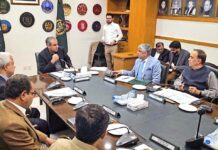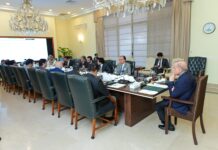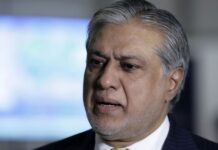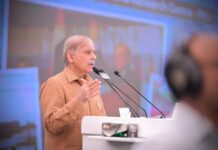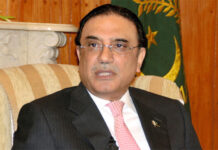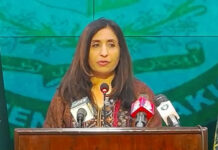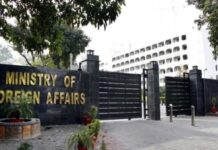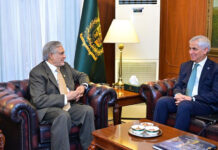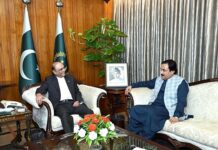ISLAMABAD, July 27 (APP):The Central Election Commission of Uzbekistan has convened a meeting and a series of events to prepare for the upcoming elections for the Legislative Chamber of the Oliy Majlis and the Councils of People’s Deputies.
The commission emphasized the importance of conducting these elections in full compliance with the Constitution and laws of Uzbekistan, said a statement issued here by Uzbek embassy on Saturday.
According to Article 128 of the Constitution, elections for these bodies are set for the first Sunday of the third ten-day period of October in the year their term expires. With the current term ending in 2024, the elections are scheduled for October 27, with the campaign commencing on July 26, as decided by the Central Election Commission.
These elections mark a notable shift from previous ones, occurring in a new socio-political context as defined by the Constitution.
The meeting highlighted several unique features of the upcoming elections. For the first time, Uzbekistan will employ a mixed electoral system for the Legislative Chamber of the Oliy Majlis. Seventy-five deputies will be elected through the majoritarian system, where voters select specific candidates, and the remaining seventy-five will be chosen based on votes for political parties under the proportional system.
A significant advancement is the full digitization of election commissions’ activities and their interactions with election participants. This development will reduce bureaucracy, save time, and streamline document handling, ushering in a new era of efficiency in the electoral process.
Additionally, election legislation has been fundamentally revised to meet advanced democratic standards. New provisions include a revamped system for election bodies led by the Central Election Commission, a mandate for political parties to ensure at least 40% of their candidates are women, and a requirement for a candidate to receive a relative majority of votes to be elected, eliminating the need for a repeat vote if they secure more votes than other candidates in their district.
The elections will take place amid significantly strengthened parliamentarianism and the expanded powers of representative bodies at the local level, as established by the Updated Constitution. The Legislative Chamber’s powers have increased from 5 to 12, and the Senate’s from 12 to 18.
The parliament’s oversight functions over the executive, judicial, law enforcement agencies, and special services have been expanded. The institution of hokims leading local Councils of People’s Deputies will be abolished, and 33 powers previously held by hokims will be transferred to local Councils to enhance their role in resolving state issues.
The meeting underscored the significance of these elections as a vivid example of democratic state-building and an essential means for citizens to exercise their constitutional rights. The elections will involve electing 150 deputies to the Legislative Chamber, 65 members to the Senate, 65 deputies to the Jokargy Kenes of the Republic of Karakalpakstan, and deputies to 208 district (city) Councils in the regions and Tashkent city, with approximately 30,000 candidates and nearly 90,000 trusted representatives actively participating.
Over 120,000 election commission members and more than 70,000 citizens and international observers are expected to participate in the election process.
To engage citizens widely, the Central Election Commission announced that the elections will be held on October 27 under the slogan “My Choice – My Prosperous Homeland.”
The “E-Saylov” information system is a key tool in enhancing election transparency and accessibility. It enables around 60 interactions between election commissions, political party candidates, observers, and the media electronically. Integrated with other electronic platforms, it automates many election procedures, forming an extensive database of nearly 400,000 participants, including commission members, candidates, and observers. About 32,000 participants will professionally use the system, which includes 40 types of SMS notifications. For citizens, it provides statistical data on voters and polling stations, information on candidates, and interactive maps of candidate biographies.
The meeting emphasized that the “E-Saylov” system represents a new level of technological advancement and transparency in elections. It was also noted that political parties have the right to nominate candidates for deputies according to Article 37 of the Election Code. To participate, parties must have been registered by the Ministry of Justice at least four months before the campaign announcement and collect at least 40,000 supporting signatures.
Additionally, a calendar plan was approved to ensure all election-related activities are carried out step-by-step within the legal timelines. The Central Election Commission, as an impartial and independent constitutional body, will take all necessary measures to prepare for and conduct the elections in full compliance with national legislation and international standards, ensuring the process is open and transparent.
A Press Center has also been established under the Central Election Commission.
مضمون کا ماخذ : بہت کچھ
